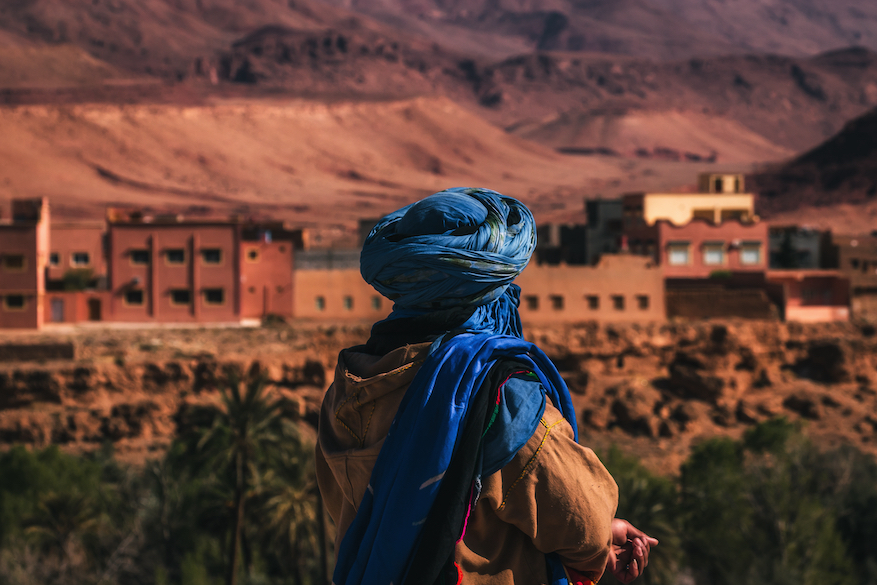Why Morocco Matters to Europe’s Security
On many levels, Morocco holds the key to Europe’s security.
As the famous quote goes, “Geography is destiny,” and this is especially true for Morocco’s role in Europe’s security. Morocco is a critical partner for Europe, and its leadership is essential for stabilizing Africa. In a region known for its instability, Morocco stands out as a beacon of hope and progress, which is why Europe must pay attention to its importance.
Morocco’s leadership has been pivotal in promoting stability throughout North Africa. The country’s economic achievements in Africa are commendable, with a thriving economy and strong trade relations with European partners. The country’s institutional and macroeconomic stability, along with its sound infrastructure and human resources, has created a conducive environment for foreign investment and business growth.
But that tells only half the story.
In fact, Morocco’s stabilizing role is further highlighted by its approach to dealing with migration. Unlike many other North African countries, Morocco has embraced a holistic approach to migration, focusing on the human aspect rather than the political one. The country has implemented measures to help migrants integrate into society, providing them with access to education, healthcare, and job opportunities. Morocco’s efforts in this regard have won the admiration of European leaders who are grappling with their own migration headaches.
The leadership of King Mohammed VI has been a driving force behind Morocco’s progress and stability. His recent diplomatic wins, including the U.S. recognition of Morocco’s sovereignty over Western Sahara, have further strengthened the country’s position on the international stage. King Mohammed VI demonstrated exceptional leadership, promoting a vision of a stable and prosperous North Africa, which is in line with European interests.

A pivotal role in intercultural and inter-faith dialogue
Therefore, Europe should support Morocco’s efforts for several reasons. Firstly, Morocco is a reliable and strong partner, with shared interests in regional stability, counterterrorism, and economic development. Secondly, Morocco has a unique position as a bridge between Europe and Africa, which is crucial for enhancing trade and economic ties. Lastly, Morocco’s leadership provides a positive model for other countries in the region, promoting democracy, human rights, and good governance.
Morocco’s pivotal role in intercultural and interfaith dialogue cannot be overlooked. The country has a long history of promoting a moderate form of Islam known as wasatiyyah. This approach to Islam emphasizes tolerance, coexistence, and dialogue, which are essential values for promoting peace and stability in a region plagued by conflict and extremism. Morocco’s efforts to promote interfaith dialogue and cooperation have been recognized by the international community, and the country has been commended for its inclusive approach to religion. Mohammed VI has been a leading advocate of interfaith dialogue, promoting it both nationally and internationally. His vision of a tolerant and inclusive society has inspired many, and his initiatives have been instrumental in promoting peace and understanding between different faiths and cultures.
Morocco’s promotion of wasatiyyah is particularly important for the stability of the region, particularly the Sahel. Africa’s Sahel region is one of the most unstable and fragile regions in Africa, plagued by poverty, insecurity, and conflict. The spread of extremist ideologies and the rise of violent groups have further exacerbated the situation, creating a vicious cycle of instability and violence.
In this context, Morocco’s approach to Islam can provide a positive model for other countries in the region, promoting a moderate and inclusive interpretation of Islam. Morocco’s efforts to promote intercultural and interfaith dialogue can help build bridges between different communities and promote mutual understanding and respect. This, in turn, can contribute to reducing tensions and conflicts and promoting stability in the region.
Furthermore, Morocco’s leadership in promoting interfaith dialogue and cooperation can also have a positive impact on the fight against extremism and terrorism. By promoting a moderate interpretation of Islam, Morocco can counter the narrative of extremist groups and provide an alternative vision for young people who may be at risk of radicalization.
Thus, Morocco’s role in promoting intercultural and interfaith dialogue, and its efforts in promoting a moderate form of Islam, are essential for the stability of the region. Europe and other international partners should support Morocco’s efforts, recognizing the country’s leadership and commitment to promoting regional stability and development.
Morocco matters to Europe’s security, and its leadership is essential for stabilizing North Africa. The country’s economic achievements, institutional stability, and holistic approach to migration are commendable, and its role as a regional leader cannot be overstated. Europe should support Morocco’s efforts, recognizing the country as a reliable and strong partner, committed to regional stability and economic development.